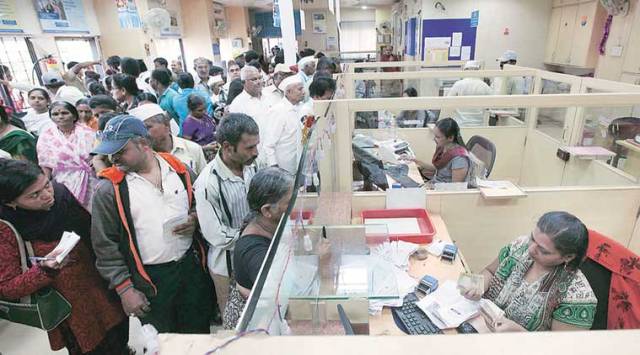Credit growth momentum may continue in FY24, say lenders
In the fiscal ended March 31, 2023, bank credit registered a growth of 15 per cent compared to 9.6 per cent in FY2021. In the previous year, the overall growth in bank credit was driven by the retail sector, which rose by 20.6 per cent.
 The bank’s domestic advances grew by 15 per cent in FY2023, with retail, agriculture and MSME (RAM) book growing at around 13 per cent.
The bank’s domestic advances grew by 15 per cent in FY2023, with retail, agriculture and MSME (RAM) book growing at around 13 per cent.
With demand for loans from retail and corporate segments expected to continue, lenders are confident of registering healthy credit growth in the current fiscal.
In the fiscal ended March 31, 2023, bank credit registered a growth of 15 per cent compared to 9.6 per cent in FY2021. In the previous year, the overall growth in bank credit was driven by the retail sector, which rose by 20.6 per cent.
“We don’t see any slowdown in credit growth. The demand is there and we keep continuing with credit disbursal at various levels,” Canara Bank Managing Director and CEO K Satyanarayana Raju said after the Q4FY23 results announcement.
The bank’s domestic advances grew by 15 per cent in FY2023, with retail, agriculture and MSME (RAM) book growing at around 13 per cent.
“I don’t see any downward trend in the demand in the retail segment (in FY24), especially in the housing loan sector. The growth of 14 per cent, which we have shown in FY23 will be a benchmark for us at the bottom level. We are confident that we will grow above that,” Raju said.
The lender expects its corporate loan book to grow at 16-17 per cent in the current fiscal. It is seeing a huge demand coming from sectors such as infrastructure, construction, data centre, engineering and chemicals.
Another state-run lender, Union Bank of India, which saw its domestic advances grow at 12 per cent in FY23, is looking at a similar growth in the current financial year.
“We are looking at a credit growth of 10-12 per cent. We are seeing demand coming from the hybrid annuity model (HAM), renewables, steel and chemicals segments. In retail, we have got good growth in housing, education, vehicle and gold loans,” Union Bank’s Managing Director and CEO A. Manimekhalai said.
According to BNP Paribas, with corporate balance sheets de-leveraged to levels last seen in the early years of this millennium, it creates ideal conditions for a further acceleration in credit growth.
“Also, prime retail borrowers’ affordability does not seem stretched either — still low revolver rates for credit cards a corroborating data point,” said Santanu Chakrabarti, Analyst (Banking and Finance), BNP Paribas India, in a recent report.
However, many analysts believe that bank credit may slow down to 10-14 per cent in FY24. The slower growth in bank credit is on the back of moderation in GDP growth which is likely to be around 6.5 per cent as against an expectation of 7 per cent in FY23.
Last month, Nomura, in a report, said it expects credit growth to ease to around 10 per cent y-o-y in FY24 from around 15 per cent in FY23.
It attributed two factors for it – ebbing inflationary pressures, especially WPI inflation, which should lower working capital needs; and a likely moderation in real GDP growth to 5.3 per cent y-o-y in FY24, due to global and domestic factors.
Photos







- 01
- 02
- 03
- 04
- 05
























